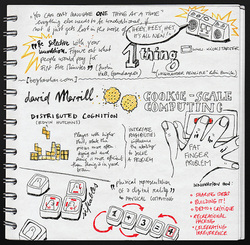--- I'm learning that I've developed some coping mechanisms over the past few years to hide or make my shortcomings seem less extreme/embarrassing/pathetic to other people and myself. I didn't even realize this was happening. Sometimes these coping mechanisms can be good. For example, as long as it doesn't interfere with you're overall performance, ways of hiding your symptoms might be better for your employment.
But unfortunately, these tricks can prevent us from getting the help we need, when we need it, instead of after we've already caused huge problems for ourselves. I know that if I had recognized my ADHD symptoms sooner, I may have finished high school sooner. (In hindsight, Florida Virtual School was probably not the best idea..at least not without my teachers' knowledge of my ADHD). I would have done much better my first year in college. And my social life would not have been impacted as much as it has by me putting things off and being forgetful.
Thinking about & discussing these things is not throwing yourself a pity party, but instead a way of realizing that your past failings without treatment were not completely your fault and eventually learning to forgive yourself. (See my previous post about being hard on ourselves for more.)
I also want to note, especially for my new followers that don't know much about this, that people suffering from Attention Deficit Disorder experience varying levels of symptoms from minor to severe and not everyone experiences the same symptoms. Too often than not, this condition (as well as many other disorders) are trivialized by those that either don't have the condition or those with only minor symptoms that don't need much treatment. The stigmas associated with mental illness and learning disabilities is slowly dissipating in our society, but not fast enough.
P.S. I need to take my own advice and put everything I've learned to use in my life. Unfortunately, doing this is much more difficult than you'd think and I'm sure my fellow ADDer's & those with depression or anxiety symptoms can relate. It's okay to always be a work in progress. Just try to keep working at it.
I've moved! You can find 'Look, a Squirrel' at look-a-squirrel.tumblr.com. I'm still posting here for a little while for your convenience, but I'll be switching over in the next month. You can view the blog without having a Tumblr account but I'd love it if you would follow me so I can get to know you. :)



 RSS Feed
RSS Feed